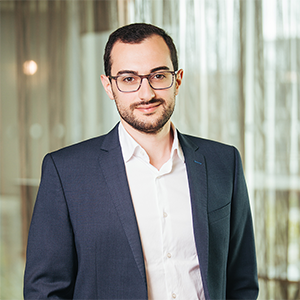Why did you choose a job in this profession?
I have a Master of Science and Technology of Nuclear Fusion, but I am also interested in law, argumentation, logic, and writing. Working with intellectual property and training to become a patent attorney allows me to combine my technical knowledge and my other interests in a challenging but rewarding career.
What attracted you to your role?
I am interested in all subjects related to energy production and distribution, such as electromechanics, power systems, and high-voltage technology, and studying nuclear fusion engineering has allowed me to expand my technical knowledge in a field that is developing extremely advanced technologies which are relevant not only for the energy generation sector, but also find application in medicine, power transmission, and defence. My job involves working on a multitude of inventions in my areas of expertise, with new ideas and technologies reaching my desk every day, and I find this more stimulating than a career in R&D.
What skills are useful in this sector/profession?
Sometimes I work on 4 or 5 different cases during my day, quickly switching between them, therefore attention to detail and keeping my work in good order are extremely important to cope with this fast-paced aspect of the job. Further skills I think are important in my role are the ability of argumentatively selling and defending an idea and the ability to work under pressure in a team. Speaking a few languages is a good plus if you want to join a firm with many European clients; I speak English, Italian and Dutch, but any language will help.
Is it a 9-5 job?
Yes and no. It is often a 9-5 job, but some days you will have to put in some extra effort to meet a deadline, while other days will end early. Also, Kilburn&Strode gives us great flexibility to organise our work, compatibly with our responsibilities towards our clients and colleagues. Sometimes attorneys start and end their day a bit earlier, sometimes a bit later. We are also given the option to work from home some days during the week and I find that this improves my performance in my job.
Do you have any advice for anyone wanting to enter the profession?
Work experience is not necessary to enter the profession, but it can offer a valuable insight. Some firms offer internship programmes, so keep an eye out for any adverts and try to apply. Alternatively, most firms host open days where you can get information on the work patent attorneys do, especially trainees, and I suggest you attend one or two, especially if you are interested in a particular firm and would like to know more about them.







